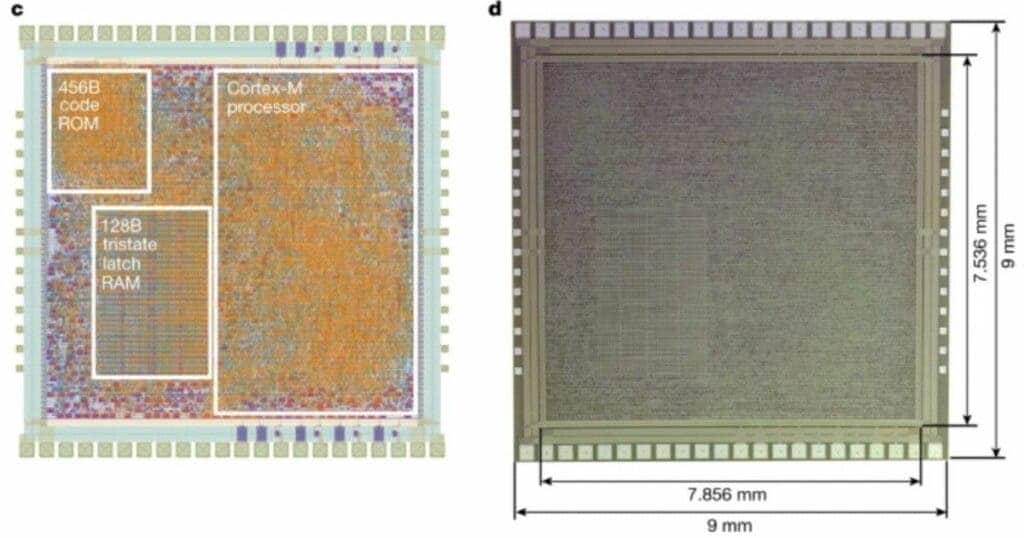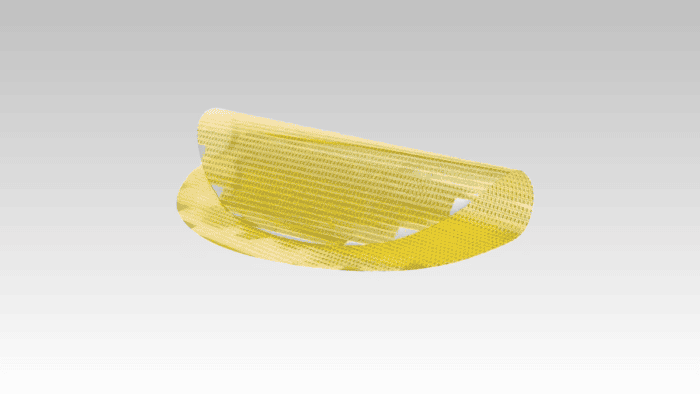The market of foldable smartphones is raising the demand for a new kind of chips. While we’re able to fold displays, there are still some challenges and the smartphone’s actual hardware is the biggest barrier that prevents the company from launching totally flexible devices. Apparently, ARM is running to provide a solution that will make its chips more flexible. Currently, the industry uses silicon for its chips, but it is starting to explore new materials like plastic, yes plastic.
According to a report, the British firm, which is behind pretty much every mobile processor today, is looking at this for a future where there’s a micro-controller in pretty much everything. That includes flexible materials like even a piece of paper or medical bandages. The company published a paper in the scientific journal Nature, explaining how it achieved to build a chip with plastic. Worth noting that this isn’t the first time we’ve heard about flexible chips. However, ARM states that this time around it has made solid advancements. For instance, the new design has at least 12 times more log gates than previous chips.

PlasticARM – the future envisioned by ARM
The new chip carries the PlasticARM moniker and uses a 32-bit Cortex-MO CPU< 456 bytes of ROM and 128 bytes of RAM. Yes, it is simple as it looks, however, it’s proof that the concept exists and is advancing. However, don’t hold your breath yet. The PlasticARM is not meant to run anything at this point. For now, it can run only three test programs that are hardwired into its circuits right now. However, ARM states that it will allow others to install new code in future versions.
As you may know, the PlasticARM is a system on chip or SoC. It stands for an entire system, computer, on one chip. The term is well known nowadays due to the Qualcomm Snapdragon chips, MediaTek chips, and Apple’s Bionic and M-series chips. This design saves space, improves power efficiency, and delivers great performance. With the advancement of PlasticARM or other solutions, we can see, for example, a Snapdragon Wear chip built into the strap rather than on the dial.
According to the report, ARM is envisioning chips like the PlasticARM to one-day power calculations humankind will do on food packaging, wearable patches, and even a bottle of perfume. That’s the kind of future we often see in science-fiction images. Just imagine a bandage with a flexible microprocessor that allows doctors to monitor patients remotely. That is what the tech company is envisioning with this solution.





